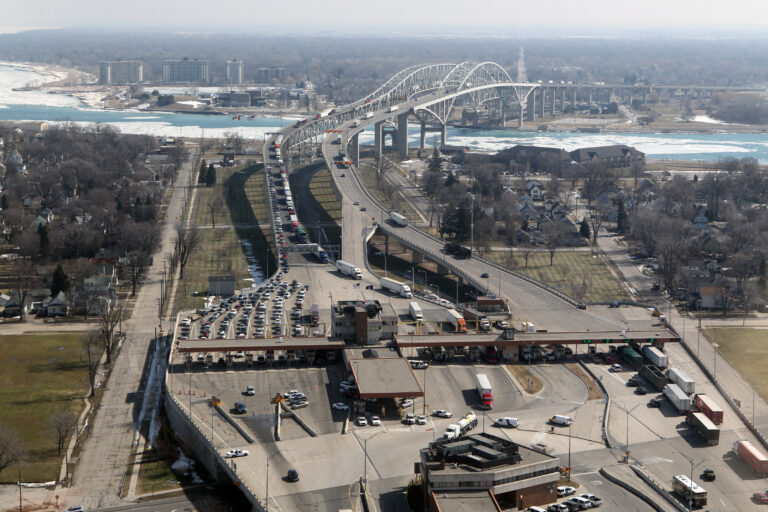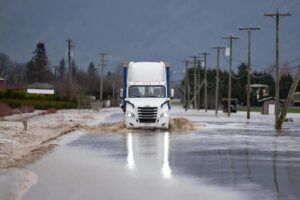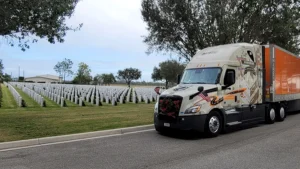PORT HURON, Mich. — The Michigan Department of Transportation (MDOT) announced on May 21 that no cash payments will be accepted for any vehicles conducting essential travel via the eastbound Blue Water Bridge that links Port Huron and Point Edward, Ontario, Canada. The policy complies with recommendations by Michigan Gov. Gretchen Whitmer and the Michigan Department of Health and Human Services designed to help prevent the spread of COVID-19.
All commercial traffic will need to pay by prepaid commuter account cards or debit/credit forms of payment. MDOT encourages any commercial travelers who wish to apply for the prepaid commercial account to visit www.federalbridge.ca and complete the application.
On March 18, the Federal Bridge Corporation Limited (FBCL) and the MDOT Blue Water Bridge operations suspended all private passenger vehicle cash transactions for westbound bridge crossings. To reduce the spread of COVID-19, MDOT added further restrictions on forms of payment, and has not accepted cash payments for any toll crossing since March 26. Reducing person-to-person contact via cash exchange will help to reduce exposure to contagion.
In accordance with orders from the United States and Canadian federal authorities, temporary travel restrictions on all land ports of entry and ferries between the U.S. and Canada are expected to remain in effect through June 21.
Border protection agencies from both the U.S. and Canada are committed to supporting safe travel for essential customers and commercial truck traffic. The agencies and bridge administrations will follow all federal guidelines intended to help mitigate the spread of COVID-19.
At this time U.S. Customs and Border Protection (CBP) and the Canada Border Services Agency (CBSA) have suspended normal operations at U.S.-Canada land ports of entry and are only processing travelers engaged in essential travel. The trade of legitimate goods has not been interrupted.
According to the CBP, some cases of essential travel include:
- S. citizens and lawful permanent residents returning to the U.S.
- Those traveling for medical purposes.
- Individuals traveling to attend educational institutions.
- Individuals traveling to work in the U.S. (including those working in the farming or agriculture industries who must travel between the U.S. and Canada for work).
- Those traveling for emergency response and public health purposes.
- Individuals engaged in lawful cross-border trade (such as truck drivers supporting the movement of cargo between the U.S. and Canada).
- Individuals engaged in official government travel or diplomatic travel.
- Members of the U.S. Armed Forces, their spouses or children returning to the U.S.
- Individuals engaged in military-related travel or operations.
Individuals traveling for tourism purposes such as sightseeing, recreation, gambling, or attending cultural events are not considered essential travelers.
The Trucker News Staff produces engaging content for not only TheTrucker.com, but also The Trucker Newspaper, which has been serving the trucking industry for more than 30 years. With a focus on drivers, the Trucker News Staff aims to provide relevant, objective content pertaining to the trucking segment of the transportation industry. The Trucker News Staff is based in Little Rock, Arkansas.















